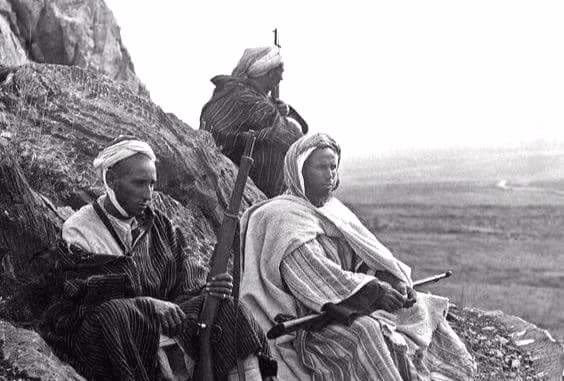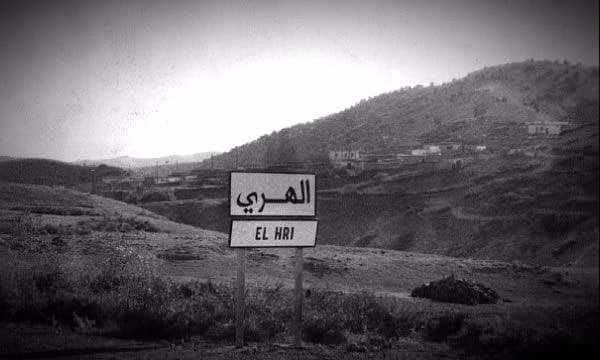[dropcap]T[/dropcap]he Battle of El Herri (also known as Elhri) was fought between France and the Amazigh Zaian Confederation on 13 November 1914. It took place at the small settlement of El Herri, near Khénifra in the French protectorate in Morocco. The battle was part of the Zaian War, in which the confederation of tribes sought to oppose continued French expansion into the interior of Morocco. Having captured the strategic town of Khénifra earlier in the year, the French, under General Hubert Lyautey, entered negotiations with Mouha ou Hammou Zayani, who led the Zaian. Lyautey thought that peace could be achieved and ordered Lieutenant-Colonel René Laverdure, who commanded the garrison in Khénifra, not to launch any offensives.
Laverdure became frustrated with the lack of action and, on 13 November, led almost his entire garrison in an attack on the Zaian encampment at El Herri. The attack initially went well, with his artillery and cavalry clearing the tribesmen from the camp, looting the Zaian tents and capturing two of Hammou’s wives. However, the French encountered a significant Zaian force during its withdrawal to Khénifra. This force engaged the French with harassing fire, forcing them to move only under the cover of their artillery. Laverdure then ordered his wounded back to Khénifra with a guard of a company of infantry, which were joined by large numbers of other troops who broke ranks to join the column. Whilst making a river crossing, Laverdure’s rear guard and artillery were overrun and annihilated. Laverdure’s remaining troops then formed square and fought a desperate last stand against several thousand tribesmen before they were also overrun and killed.[ads1]
The French losses were significant: some 623 North African, Senegalese and French soldiers (including Laverdure) were killed and 176 wounded. The Zaian lost around 182 men killed. The column of wounded reached Khénifra just ahead of pursuing Zaian forces and the town came under siege. Lyautey was dismayed at Laverdure’s actions and was briefly of the opinion that he had cost him the war. However, a relief force reached Khénifra within a few days and the situation stabilised. The Zaian War lasted until 1921 when negotiations secured the submission of much of the confederation to French rule and a military offensive pushed the remainder into the High Atlas mountains.
The battle was a shock to the French who had not expected the tribes to get the better of a well-armed column. Lyautey himself said that “in our entire colonial history there has never been a case of the destruction of such an important force, of the loss of [almost] all its officers …, of the disappearance of so much materiel and booty of war”. The battle has been described variously as the worst ever defeat of French forces in Morocco, the worst in North Africa and one of the worst in the French colonies. The heavy losses suffered at El Herri overshadowed the planning of French military policy for Morocco during the First World War.
Today the battle is celebrated by the Amazigh people as a historic event in Moroccan history, alongside other instances of resistance against French and Spanish occupation.

